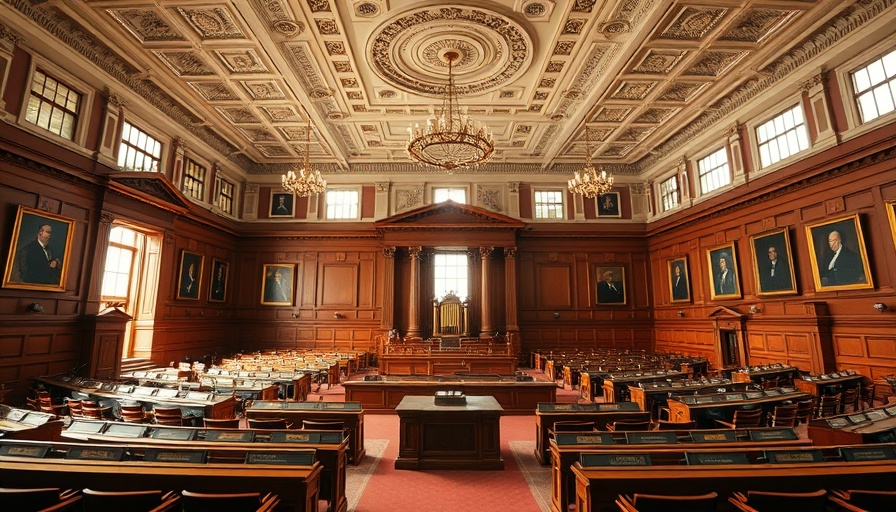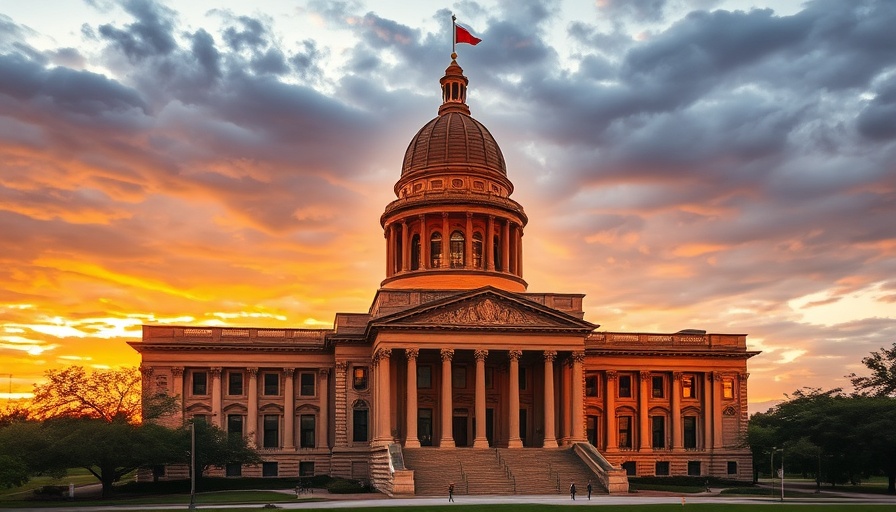
Unanticipated Opposition: Conservatives Rally Against Abbott’s Voucher Proposal
While Governor Greg Abbott's voucher plan appears to be gaining traction in Texas's legislative landscape, an unexpected pushback is emerging from within his party. The discourse surrounding school choice is evolving, with grassroots conservatives taking a stand against what they perceive as an intrusion of government control into educational freedom. Brian and Joy Roberts, co-founders of the Grayson County Conservatives, are leading this resistance. Despite their conservative credentials, they argue that Abbott's plan deviates from the true essence of school choice.
True School Choice: A Conservative Perspective
The Roberts' letter against the proposed vouchers underscores a significant ideological divide. They believe that "true school choice already exists without government intrusion," emphasizing that any government-backed program—like the current voucher initiative—would introduce bureaucratic oversight that could undermine parental autonomy in educational decisions. This perspective resonates with over 40 conservative organizations and numerous activists who have rallied to their cause, signifying a noteworthy conflict within Texas's Republican base.
Alliance of Allies: The Growing Network of Opposition
The coalition forming against Abbott is a hodgepodge of conservative voices—from homeschool groups to grassroots activists—all unified in their mission to challenge the impending voucher legislation. The swiftness with which this coalition has gathered support demonstrates a potential rift within the party, with many traditional conservatives feeling alienated by Abbott's uncompromising push for vouchers.
Quote from Allen West, the Dallas County GOP chair, reinforces these sentiments: "Let’s not fall into the trap of rushing to get something passed without thoroughly discussing its potential ramifications." His call for careful deliberation echoes the broader sentiment among conservatives who are wary of hasty legislative actions.
The Impact of Vouchers on Texas Education
Historically, Texas has seen significant bipartisan opposition to voucher plans. For over three decades, coalitions of Democrats and rural Republicans have successfully thwarted similar initiatives. This enduring resistance raises questions about the sustainability of Abbott's current majority—a political situation bolstered by hefty donations from external sources, like billionaire Jeff Yass. His contributions, totaling $12 million, have enabled Abbott to cultivate an apparently pro-voucher Texas House.
A Diverging Path: Abbott vs. Grassroots Conservatives
Abbott's strong stance on educational vouchers has drawn criticism not only from Democrats but from within his own party as well. As he seeks to position his administration's priorities as firmly established, the growing dissent from grassroots conservatives may signal a challenging political landscape ahead, one where popular support could be fragile. Brian Roberts aptly noted, "Abbott’s kind of getting flanked for taking a position that the Democrats don’t like for one reason, and then conservatives don’t like for a completely different reason." This vulnerability may shape the political discourse in the state leading up to the next elections.
Looking Ahead: The Future of School Vouchers in Texas
As the legislative session progresses, the fate of Abbott's vouchers plan remains uncertain. Several factors will influence its trajectory, including the resilience of grassroots mobilization against it. Observing how these dynamics unfold offers insights into the complexities of political alliances and the potential for redefining traditional conservative values around education.
It's clear that the debate surrounding educational vouchers in Texas is far from over. The emergence of grassroots opposition signals a potential shift in the political landscape, where the voices of everyday Texans could influence decisions at the highest levels. This evolving narrative invites us to reflect on what true school choice means and how policy decisions should better align with the sentiments of the constituents.
Understanding these perspectives can empower voters to make informed choices about educational policies that resonate with their ideals and best serve their communities—whether through advocacy, voting, or community engagement. As this story develops, staying attuned to the implications of Abbott's push and the responses from both conservative activists and Democratic counterparts will be crucial for those concerned with the future of education in Texas.
 Add Row
Add Row  Add
Add 




 Add Row
Add Row  Add
Add 


Write A Comment